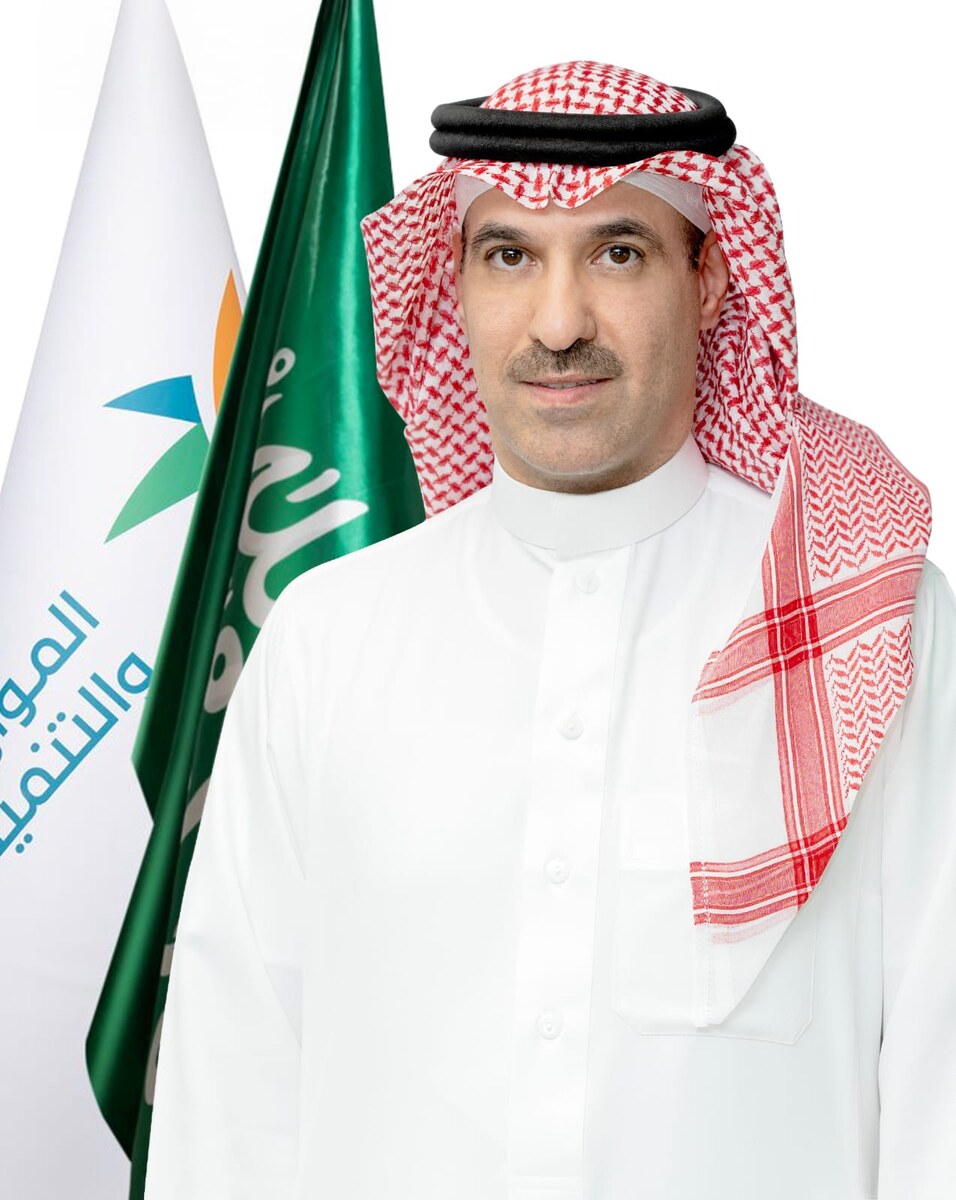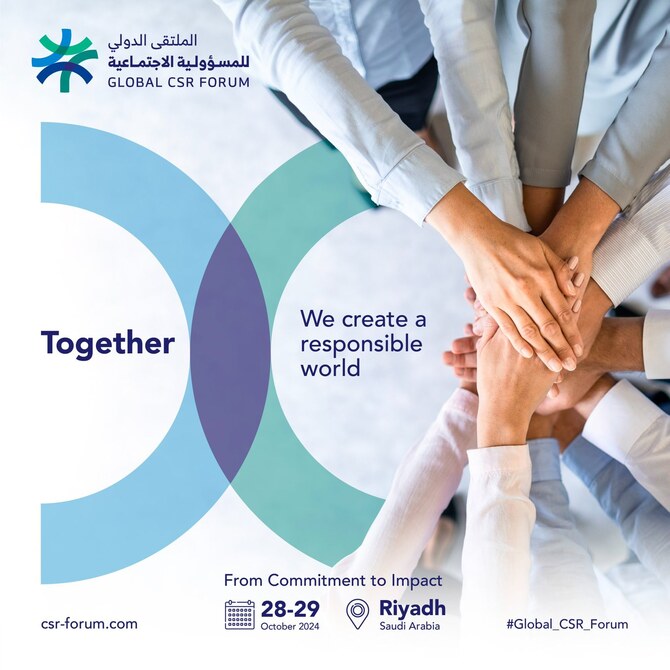JEDDAH: Riyadh will host the Global CSR Forum on Oct. 28-29, promoting social responsibility and sustainability worldwide.
The forum aims to share global experiences, encourage discussions, and identify solutions to enhance innovation and competitiveness in the social responsibility sector.
The two-day event will feature more than 100 speakers and experts from across the world. It seeks to deepen understanding of corporate social responsibility and empower sectors to excel locally and internationally.
Mubarak Al-Bogami, director general of the social responsibility department at the Ministry of Human Resources and Social Development, said: “The forum is poised to deliver a powerful impact both locally and globally.”
He said: “On the home front, it promises to enhance corporate social responsibility efforts, while on the global stage, it will serve as a vibrant hub for showcasing and sharing best practices in CSR.”
Al-Boqami added: “The core message is clear: The Global CSR Forum is a catalyst for change. It is a space where companies from around the world can connect, share insights, and collaborate to advance social responsibility on a global scale. This collaborative approach not only benefits the environment and communities but also empowers businesses to thrive and achieve their goals.”

Mubarak Al-Bogami, director general of the social responsibility department at the Ministry of Human Resources and Social Development.
The forum’s diverse program will highlight key CSR themes, including the public sector’s role in supporting CSR initiatives, responsible business models, capacity building, and using technology to enhance social and environmental impact. It will also cover principles, standards, best practices for CSR compliance, and share experiences from various sectors.
Al-Boqami said that the forum would contribute to the knowledge economy in social responsibility by sharing the latest advancements and improving best practices.
“It aims to embed a culture of social responsibility across global sectors, share successful experiences, build strategic partnerships, and support individuals in developing specific social responsibility skills.”
He added that the forum would facilitate the exchange of global best practices for Saudi companies.
“Saudi Arabia is making significant strides in global indicators, securing leading positions in many areas. The 2024 Competitiveness Report from the IMD World Competitiveness Center highlights this progress, particularly in social responsibility, where the Kingdom now ranks 16th globally,” Al-Boqami said.
Saudi Arabia has launched several initiatives to promote social responsibility, including designating March 23 as Social Responsibility Day, which has gained international recognition for its impact on global efforts.
Al-Boqami said that the forum presented a valuable opportunity to align these efforts by fostering communication and sharing successes and best practices.
He added that with participation from experts across all sectors, the forum would support precise knowledge transfer and the refinement of experiences.





























